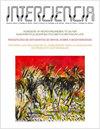Camphorosma monspeliaca essential oil as a new potential eco-friendly biopesticides for control of Colorado potato beetle Leptinotarsa decemlineata (Coleoptera: Chrysomelidae)
IF 0.4
4区 综合性期刊
Q4 ECOLOGY
引用次数: 0
Abstract
Potato plant is an important agricultural and food product for our country and the world. As a result, it is widely cultivated. The most common problem in the cultivation of potato plants is pests, which damage the plant and cause a decrease in product quality and yield. Leptinotarsa decemlineata, is a pest on the Solanaceae family, and can cause great damage by eating the leaves of the living plant during the development period. Although the most effective control method against potato beetle is chemical control, researches on alternative methods are becoming more widespread. In this context, the current study aimed to develop a new biological control agent with the aim of reducing product loss by investigating the effect of Camphorosma monspeliaca plant essential oil on L. decemlineata species eggs, larvae and adults. As a result, C. monspeliaca essential oil application was found to have lethal effect on early larvae, late larvae and adults. Besides, it was determined that the eggs were seriously deformed morphologically with the application of essential oil and that no larvae hatched from these eggs, which proved that C. monspeliaca essential oil has a high potential to be used as an effective natural insecticide.樟脑精油作为潜在的新型生态友好型生物农药防治科罗拉多马铃薯甲虫(鞘翅目:金盏花科)
马铃薯是我国乃至世界重要的农产品和食品。因此,它被广泛种植。马铃薯种植中最常见的问题是有害生物,有害生物会损害马铃薯植株,导致产品质量和产量下降。瘦虫(Leptinotarsa decemlineata)是茄科植物中的一种害虫,它在生长发育期间吃掉活植物的叶子,会造成很大的危害。虽然马铃薯甲虫最有效的防治方法是化学防治,但对其他方法的研究也越来越广泛。在此背景下,本研究旨在通过研究樟脑植物精油对松毛虫虫卵、幼虫和成虫的作用,开发一种新的生物防治剂,以减少产品损失。结果表明,喷施精油对早期幼虫、晚期幼虫和成虫均有致死作用。此外,精油在施用后虫卵形态严重变形,且未孵化出幼虫,证明了精油作为一种有效的天然杀虫剂具有很大的潜力。
本文章由计算机程序翻译,如有差异,请以英文原文为准。
求助全文
约1分钟内获得全文
求助全文
来源期刊

Interciencia
综合性期刊-生态学
CiteScore
0.80
自引率
25.00%
发文量
1
审稿时长
4-8 weeks
期刊介绍:
Interciencia is the monthly multidisciplinary publication of the INTERCIENCIA Association. It is dedicated to stimulate scientific research, its humanitarian use and the study of its social context, specially in Latin America and the Caribbean and to promote communication between the scientific and technological communities of the Americas.
Interciencia has been published uninterruptedly since 1976. Its Founding Director, Marcel Roche (endocrinologist and sociologist of science) was editor until 2008, and thereafter Miguel Laufer (neurobiologist) has been in charge. It has been included since 1978 in the Science Citation Index and other international indexes, and since 2008 it maintains an open access electronic version with material from 2005 onwards.
The priority areas of the journal, without exclusion of other areas, are Agronomy, Arid Lands, Food and Nutrition, Biotechnology, Ecology and Environment, Energy, Innovation and Technology Transfer, Marine Resources, Non-renewable Resources, Science Education, Science Policy, Study and Sociology of Science, and Tropical Forests.
Interciencia publishes in Spanish, Portuguese and English research and review articles, communications and essays, all of which are subjected to peer review. Additionally, it includes non-refereed sections such as Editorial, Letters to the Editor, Open Town Hall, Book Reviews and Upcoming Events.
All the material submitted to the journal for publication and accepted by the Editorial Committee in view of its quality and pertinence is subjected to review by peer specialists in the corresponding fields of knowledge. Neither the INTERCIENCIA Association, nor the journal or the institutions to which the authors belong carry responsibility for the contents. Signing authors are responsible for the material published under their names.
 求助内容:
求助内容: 应助结果提醒方式:
应助结果提醒方式:


